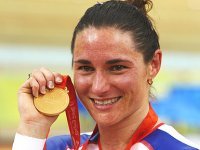New research reveals that almost half of us admit we do no exercise over a typical week and we’re worried that our children don’t participate in any exercise either. With the Olympics just two years away, the majority of us don’t believe hosting the event will increase our desire to exercise or the range of sporting activities we’ll try. Time seems to be the most significant barrier keeping us from meeting the recommended levels of activity.
How can the Olympics help us to increase our activity levels?
Joining us to discuss this further is British swimmer, track and road cyclist, multiple gold medal winner at the Paralympics Games, and twice British national track champion, Sarah Storey OBE.

